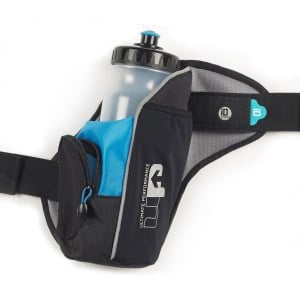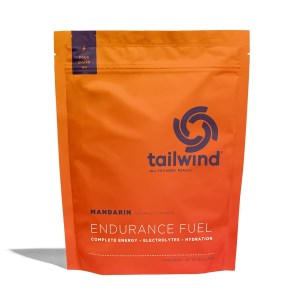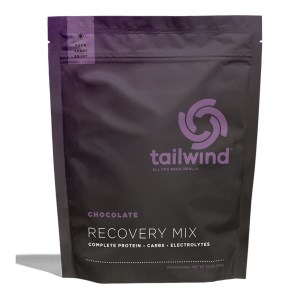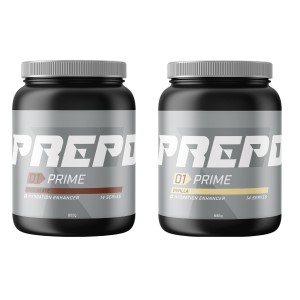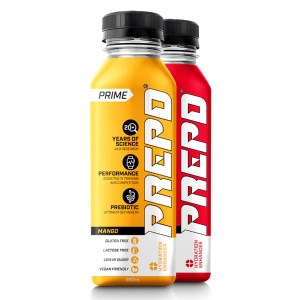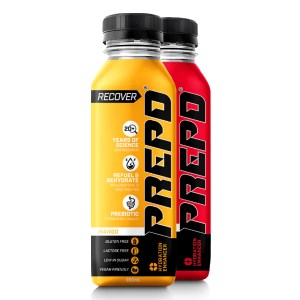8 Essential Hydration Tips About Water, Sports Drinks & Sweat
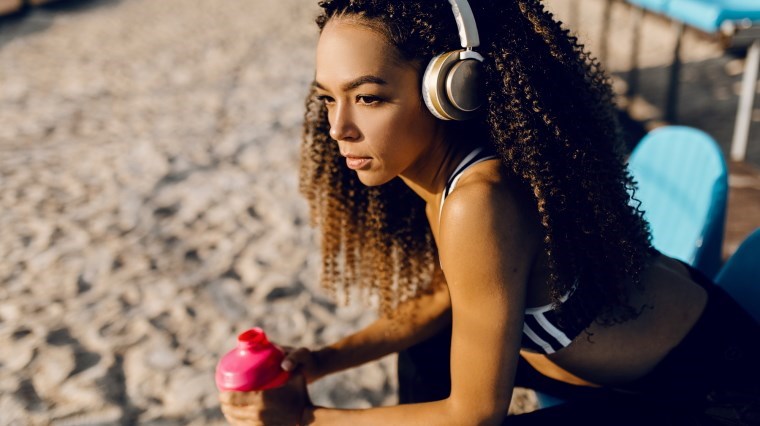
Water is integral to everything from performance and recovery to your overall health. It it essential for your body to function and the list of its benefits is virtually endless - everything from lubricating your muscles and joints, transporting oxygen to critical body tissues, aiding in digestion and promoting healthy brain activity.
As a runner or athlete you may ask yourself how you can track your hydration, be curious about the part sweat has in your health and fitness, or toss up the question of water versus sports drinks - particularly when you need to beat the heat in summer.
Whatever way you choose to drink up, Sportitude Running has you covered with our top 8 hydration tips to keep your health and hydration at the front of your mind.
1. Keep water accessible
Drinking smaller sips of water regularly throughout the day is more effective at keeping you hydrated and can help float away bloat compared to chugging water to ‘catch up’ on missed opportunities to drink.
The secret is to carry water on your runs or during outdoor recreation. When it comes to your fitness, there’s everything from sports water bottles with grippy, hand-conforming designs to running hydration packs for urban or trail running - so you can find a way to keep hydrated that suits the duration and intensity of your workout.
Throw a sports water bottle in your gym bag and keep a drink bottle by your side no matter what you’re doing – even if it’s just on your office desk or coffee table. Remember you do actually have to drink it though, which brings us to our next tip.
2. Make water more palatable
You can personalise water to suit your tastes by adding a slice of lime, lemon, strawberries or mint leaves to elevate the flavour. Water that is near room temperature is often recommend as it's more easily digestible by the body, but it is OK to throw in ice cubes for extra cooling benefits and palatability.
3. Drink pre, during and post-workout

"How much water should I drink?" is a common question asked by athletes and a tough one to answer as there's no cookie cutter approach that will work for everyone.
The most important thing is to drink pre, during and post-workout as well as regularly throughout the day. This will help maintain optimal fluid levels in your blood to support the transport of nutrients and oxygen to your hard-working muscles during exercise. Keep in mind that when your blood volume decreases due to fluid loss, the demand on your heart to pump oxygen-rich blood to your muscles increases.
The optimal quantity of water intake is different for every athlete and every workout depending on the external temperature, your genetics, body weight, gender, rate of sweating, level of exertion, duration of exercise and even your running clothing.
If you want to personalise your hydration strategy further, there are ways to track your hydration and fluid loss as we discuss in more detail below.
4. Track your hydration: Check your urine
Your urine can tell you a lot about your hydration needs. Ideally your urine should be nearly clear to pale yellow in colour. If this is the case, continue to maintain your hydration by drinking regularly as you have been. Darker shades of urine indicate that your urine is more concentrated and you should drink up.
If your urine is very dark, has a strong odour or trickles out in small amounts this is a warning sign that you’re very dehydrated. For your safety there should be no hesitation - drink water immediately.
If you have any concerns, please seek the advice of a medical professional.
5. Track your fluid loss: Sweat rate test
If you want to get a touch more technical, you can perform a sweat rate test to calculate an estimate of your fluid loss per hour during exercise. Generally an average sweat rate of 1L - 1.5L per hour is a healthy range for an adult during moderate intensity, prolonged exercise.
But don't cement those figures into stone just yet because other factors such as your body weight and fitness level will determine what is an acceptable range for you personally.
You may discover you fit into this range under most circumstances, yet find your sweat rate increases to over 1.5L per hour under race day conditions as you endure potentially higher temperatures and maintain a faster pace. In this case, you may need to drink more water than 'normal' to ensure you're hydrating adequately for the specific factors at play.
It's valuable to be aware of your increased hydration demands in advance so you can stay primed to perform with a pre, during and post-race hydration strategy that you can adapt as needed, even before you dash off the starting blocks.
6. Know sweat is not the enemy
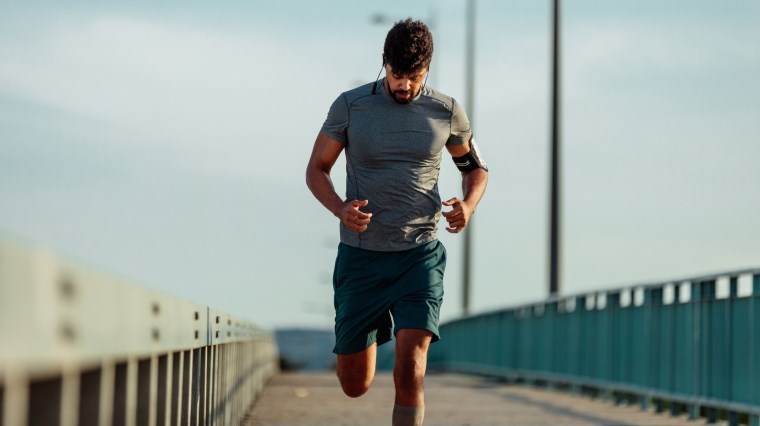
Sweat is not the enemy, but dehydration is. Sweat is the natural cooling mechanism of your body – allowing temperature regulation through evaporation. Evaporation doesn’t only lift perspiration off your skin, but takes heat with it, lowering your core body temperature.
Replenishing the majority of fluid loss with water helps ensure perspiration works in your favour. Re-hydrating on-the-go allows your body to more efficiently transport oxygen and nutrients for performance and to stay primed for recovery. In fact, a lack of sweating during activity can be a sign of dehydration as your body attempts to retain more fluids.
Windy conditions can increase the rate of evaporation, whereas humid conditions can slow the rate of evaporation due to the higher moisture content in the air. It’s important to shift down the intensity and adapt your workouts based on the external conditions and cues from your body.
7. Listen to your body and anticipate your body’s needs
You’ve heard listen to your body before – and it’s true, often your body will have symptoms to alert you of its requirements. For example, headaches, fatigue and weakness, irritable mood, light-headedness, dizziness and decreased coordination may suggest dehydration.
If you're thirsty, you're already dehydrated. Your mission should be to drink adequately long before these symptoms occur. So don’t just react to symptoms – anticipate!
8. Weigh up water versus sports drinks
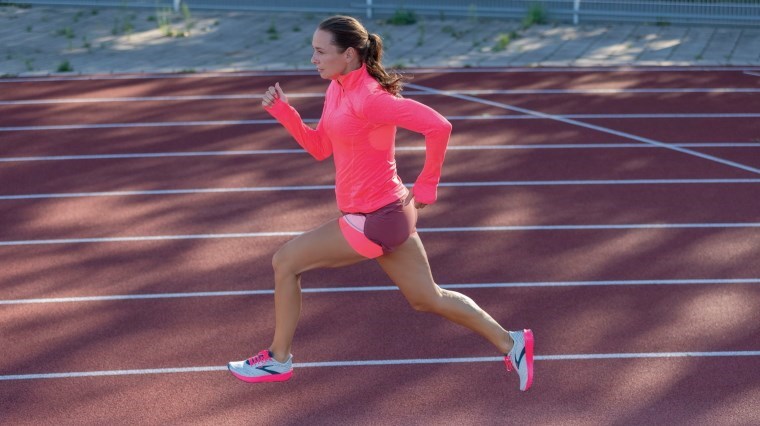
There's no doubt that the question "Are sports drinks worth it?" has crossed your mind as an athlete, runner or person with an active lifestyle. Sports drinks are generally reserved for higher intensity efforts, longer duration of exercise (over 90 minutes) or particularly hot conditions where your rate of sweat increases.
Sports drinks from reputable brands like Tailwind not only help your body re-hydrate but replenish the electrolytes lost in sweat. Each electrolyte has a role in supporting your performance and recovery - sodium in particular allows fluid to be more readily absorbed and retained by the body.
Electrolytes can also be found in food like bananas, sweet potatoes and avocado for potassium (supports healthy muscle contraction during activity) and spinach and kale for magnesium (reduces cramping and increases muscle recovery) and calcium (for bone strength and health).
Eating a varied and nutritious diet naturally helps maintain your electrolyte levels, but for athletes performing at a more competitive level, a sports drink may be worth a look. However, not all sports drinks are created equal, with many bumping up the sugar or going overkill on the sodium content and giving you a dose of calories you may prefer to avoid. In contrast, plain water has zero calories.
To get more hydration out of the water you drink, we recommend PREPD Hydration - a scientifically backed hydration sports drink. PREPD Prime sets you up for success on race day by allowing your gut to hydrate to its full potential to sustain your endurance. PREPD Recover supports your hydration in the 24 hours following the race while replenishing electrolytes lost in sweat to speed up recovery. You can learn more about what PREPD can do for your hydration by clicking the links to the product pages below or by checking out PREPD Hydration: Your Secret Weapon To Improve Performance & Recovery.
-
Prepd Prime Pre-Workout Hydration Enhancing Powder - 14 Serves
-
Prepd Prime Pre-Workout Hydration Enhancing Sports Drink - 350ml
-
Prepd Recover Post-Workout Hydration Enhancing Sports Drink - 350ml
We hope these hydration tips help you develop a hydration strategy that works for you and the future of your fitness. Your personal trainer or sports nutritionist can provide guidance whether sports drink is necessary for you based on your body’s needs and your fitness program.
If you liked this, then you'll love:
A Runner's Guide To Hydration: The Sweat Rate Test
Sports Nutrition: Healthy Carbs, Protein & Fats To Improve Performance & Recovery
Magnesium Is Good For Muscle Cramps, Sleep & Recovery. Here's How To Get Enough.
Happy running!

